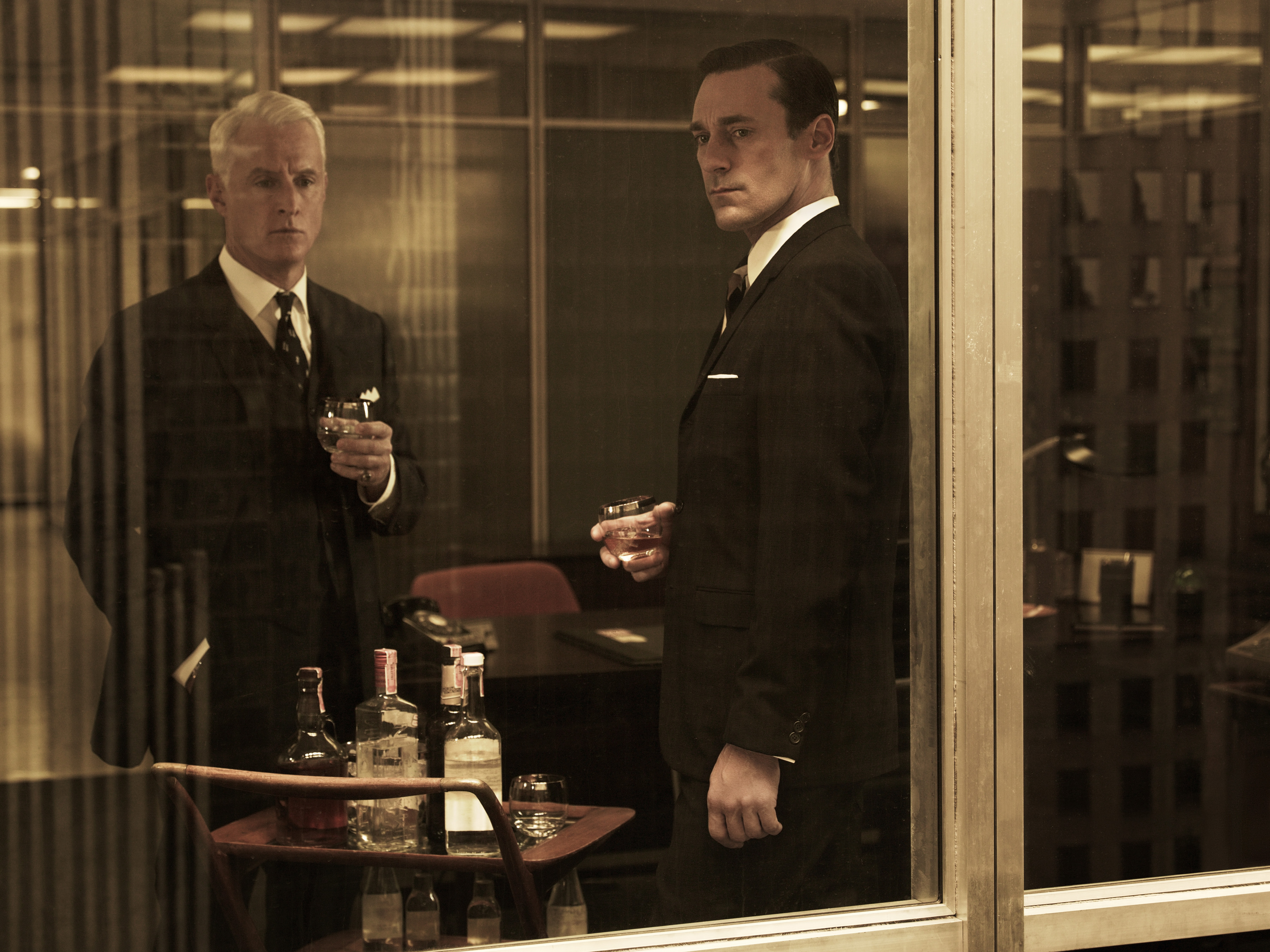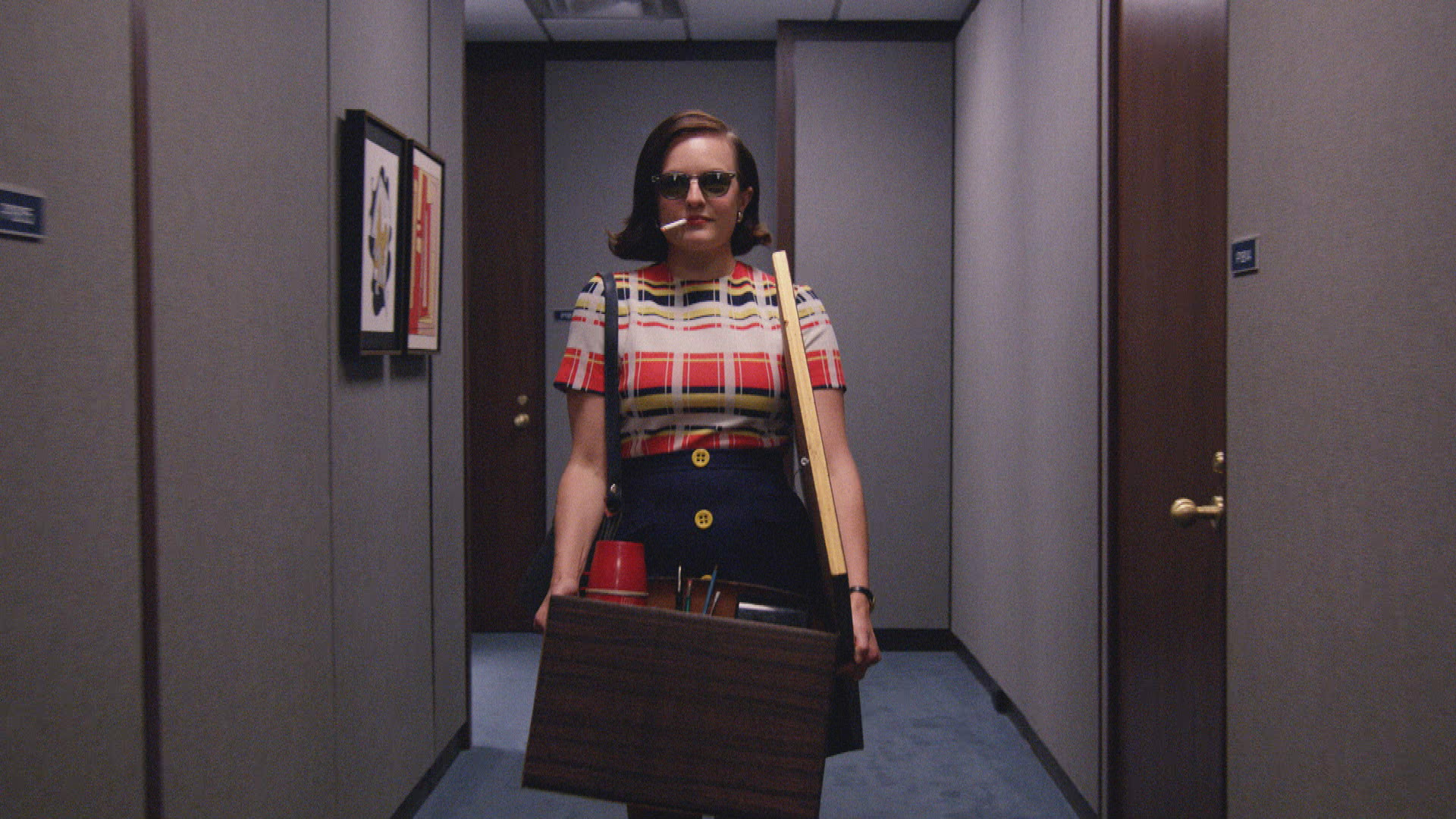The Reason Your Office Is Giving You Free Alcohol
By:
Show me a burgeoning tech startup or media company in an affluent city — San Francisco, New York, Austin, Philadelphia, Boston — and I'll show you the office bar.
The media has covered this trend extensively for the last five years or so: From the observational ("Booze Makes Comeback in Workplace, with Silicon Valley Twist," "The Office Bar Is Alive and Well in NYC's Digital Industries") to the educational ("Drinking on the Job: Is 2012 the New 1966?") to the confrontational ("What You Really Need to Know About Office Drinking," "For some workers, alcohol and startups are a dangerous mix").
It speaks to how not normal daily office drinking has been (until recently) that these journalists describe with some fascination the Kegerators, the long and elegant bars, the fridges stocked with beer, the round of shots passed around midmorning to celebrate a milestone. This is not your annual Christmas party, where the booze is hauled in, and anything left over is taken home by a few over-served employees: Here, the alcohol never leaves.
This ever-presence has inspired many journalists to draw comparisons between today's office drinking culture and that of the "Mad Men" era. On "Mad Men" — a period drama featuring a 1960s ad agency and its creative director, Don Draper — coworkers drink excessively and often. Within the same breath, however, articles drawing this comparison cite the higher-ups for modern workplaces that offer alcohol: Employees can drink, but are obligated to drink responsibly. Frank Ockenfels/AMC - amcnetworks.com
Frank Ockenfels/AMC - amcnetworks.com
The problem with offering a cool, retro perk like in-office booze — but also asking for adult etiquette — is, to quote the writer Jen Doll, "Forced bonding is hell." Today's workplace drinking is an organized sport, where employees are invited to join a champagne toast or join an office happy hour with their coworkers over email the way they'd be invited to a company training. And, if not literally organized, the drinking happens in common areas (kitchens, lounges, open work spaces) where play can be monitored: Very different from the Don Draper variety, where an executive was at liberty to drink alone or with select company behind a closed door, from an individually stocked bar.
And yet, although in practice the office drinking cultures of today and yesterday are different, there are important similarities. See, the offering and the attraction of this workplace "perk" really aren't about free tequila and PBR: They're about the message that alcohol in the workplace sends.
The men (and few women) of the 1960s ad agencies were part of a new era. The explosion of the post-war middle class is well-documented, and ad executives in New York City were reaping the rewards, their industry catering directly towards the American consumer, who had more purchasing power than ever before.
 Peggy Olson/Courtesy of AMC
Peggy Olson/Courtesy of AMC
And the executives themselves were coming up in the world. Take Don Draper, for example, who grows up poor, lives through the war, and who, through sheer ingenuity, lands a job at a major ad agency. Sure, some of the people in those offices were the Rich Who Stayed Rich, but it stands to reason that upward mobility extended to the employees of ad agencies themselves, not just their consumers.
Some of the men now able to sip bourbon at 10 a.m. had fathers who'd worked blue collar jobs, who worked with their hands, and who certainly weren't at liberty to soothe their stress or ignite their productivity by throwing a few back. The blue collar worker hit the pub on the way home, or maybe shared a six-pack after clocking out, but it was on his own dime.
What a luxury, then, for the sons and several daughters of these workplaces in the '60s, who were rewarded for their companies' prosperity by being reminded how special and wealthy they were. The availability of alcohol said: "You're not your fathers. You've made it. You're affluent, and let's drink to that."
The young men and women at the community taps of today's workplaces are not the progeny of the "Mad Men" era. Many of them were born in the ‘80s, when white collar office drinking started fading out after the business meal, and the entertainment tax deduction was majorly reduced. Alcohol became less affordable, and companies looking out for their bottom lines cut it out or cut way back.
So most of the founders of these newer companies offering booze weren't raised in a climate where office drinking was normal; they, too, are reacting against their father's generation — or, at the very least, are aware that having alcohol at work signals that they are different. Special.
Offering free alcohol to employees as a perk goes beyond incentivizing employees to linger in the office, working, and getting to know their colleagues on a less formal basis. It's about making employees aware that they are part of the elite. Maybe that is the flavor that gives the office beer its particular appeal.
